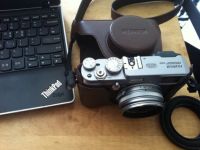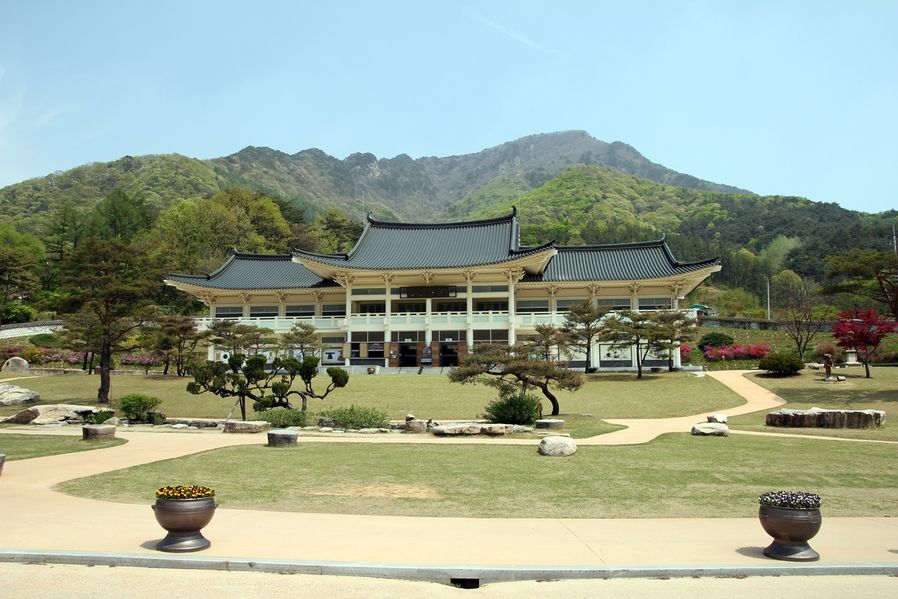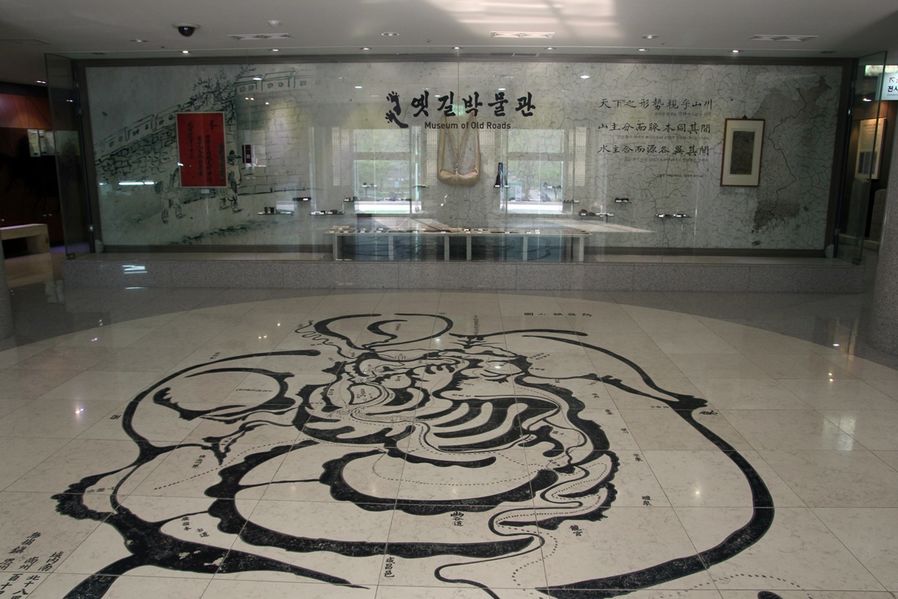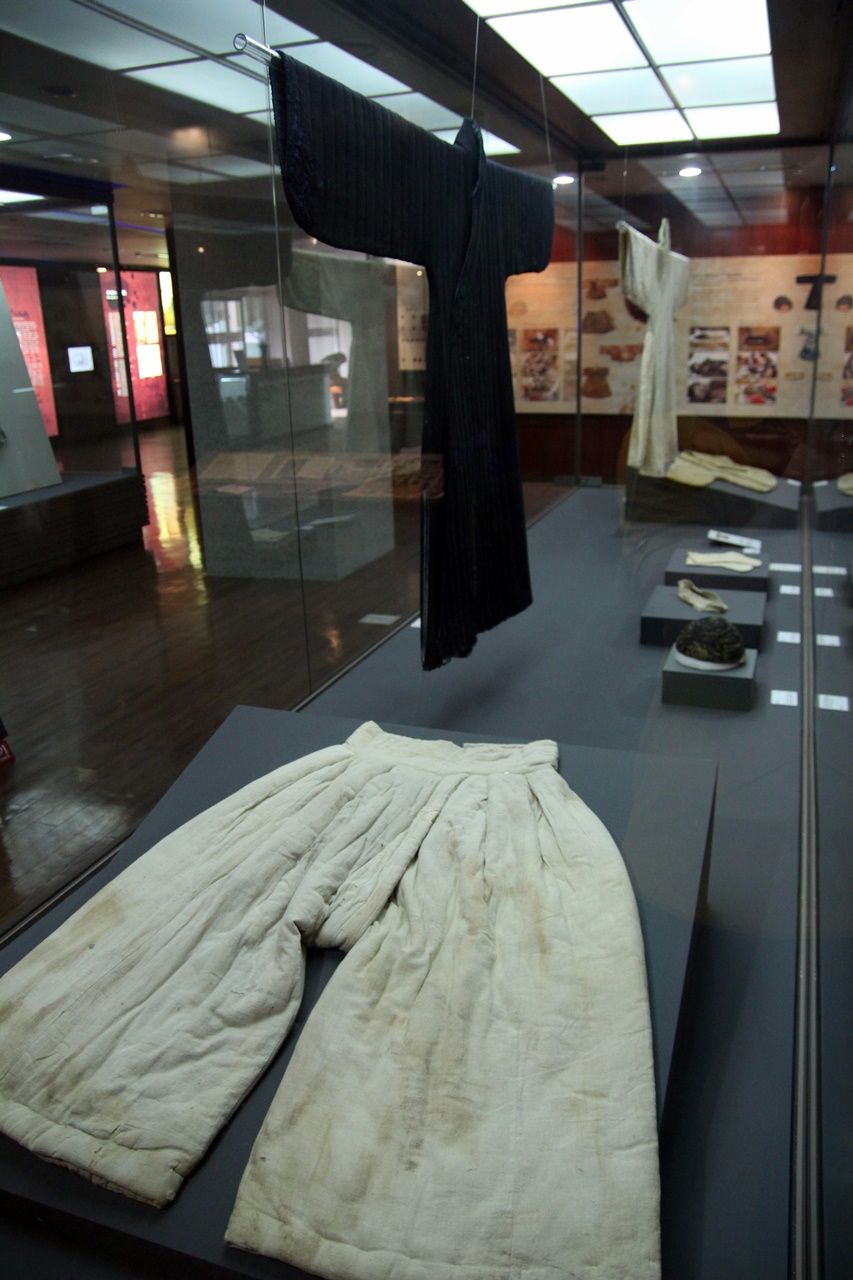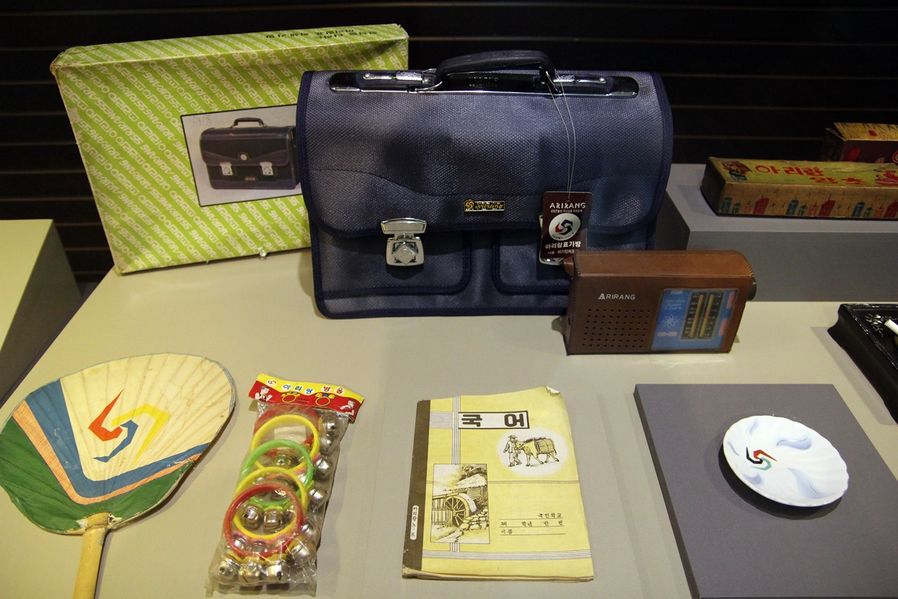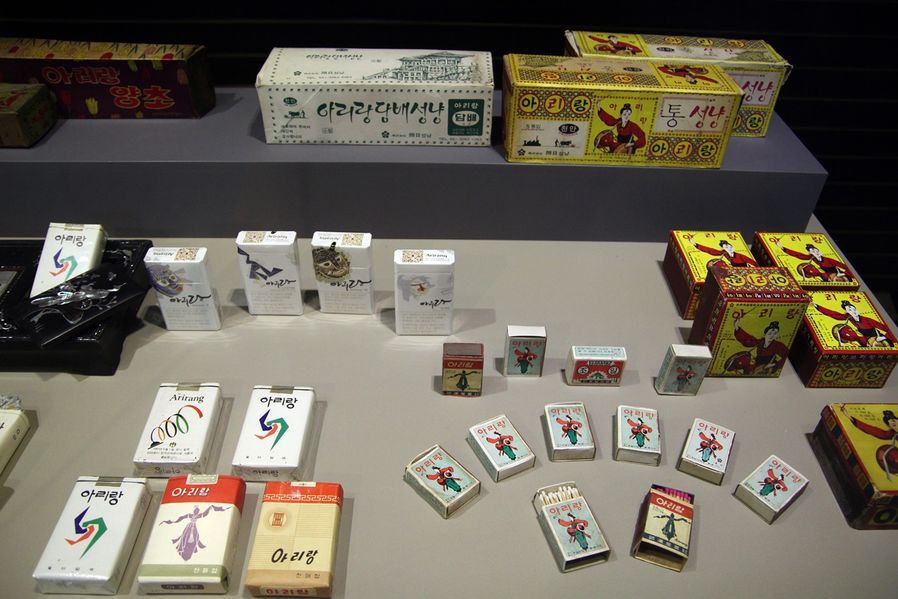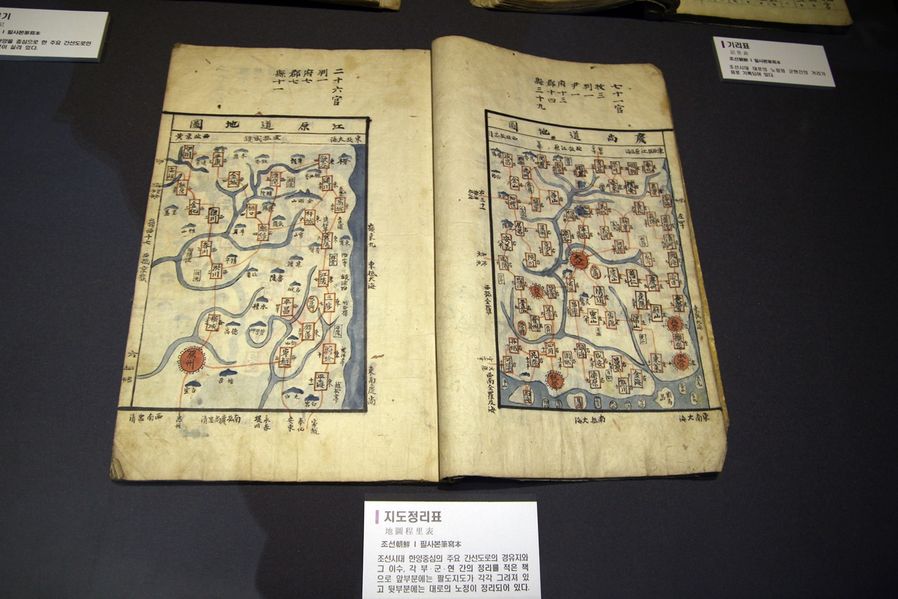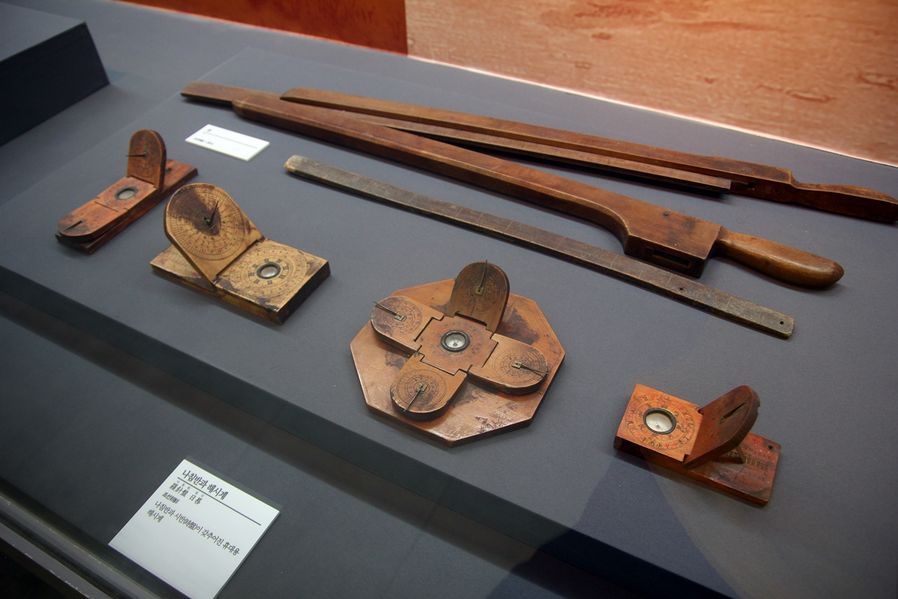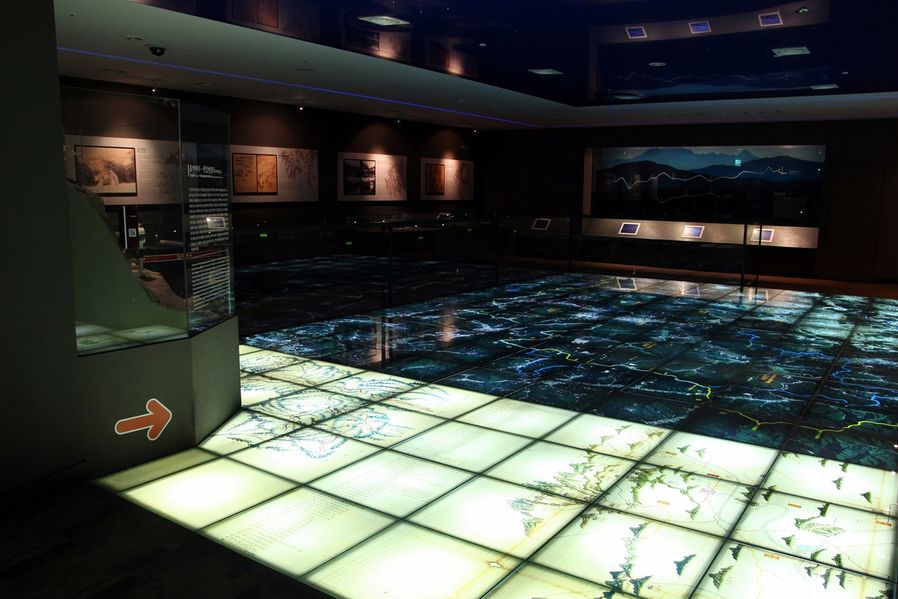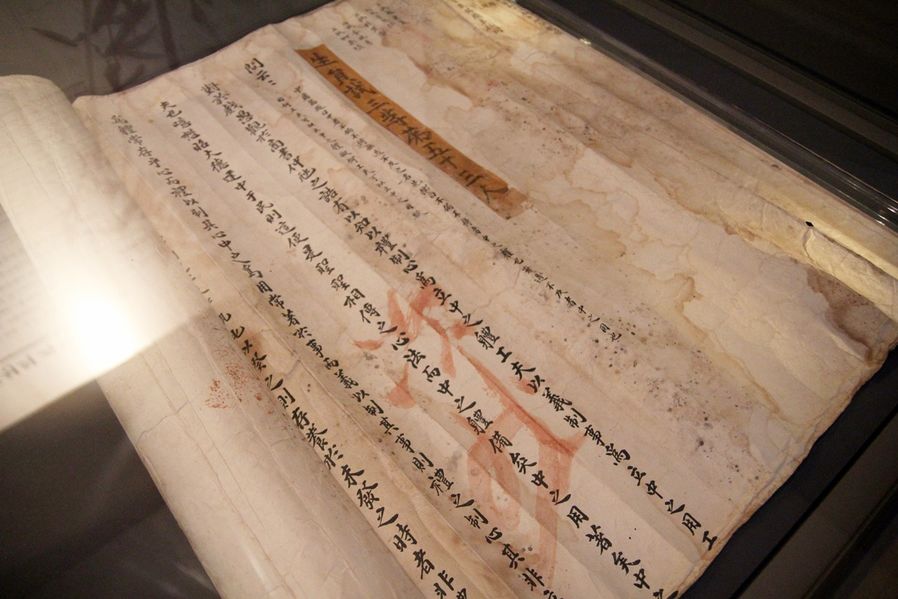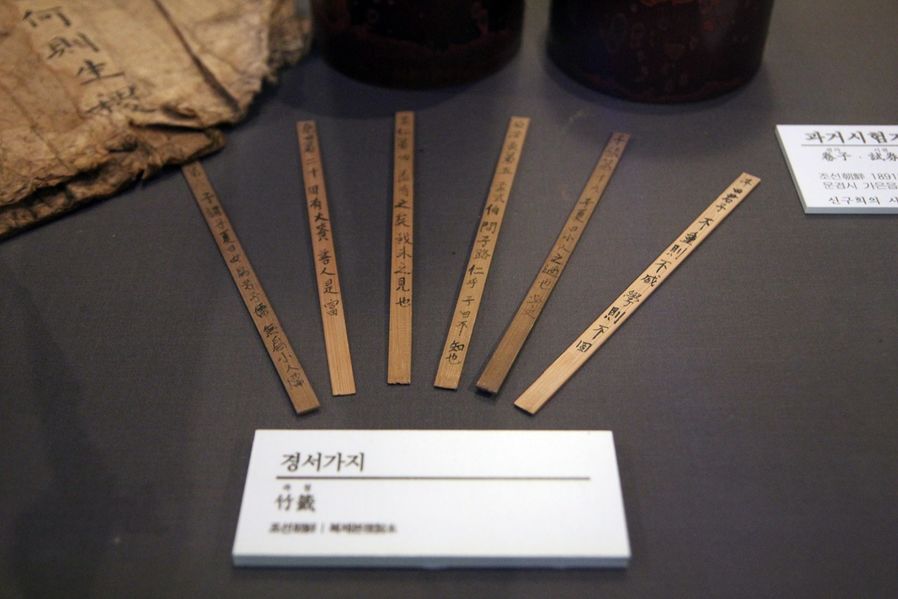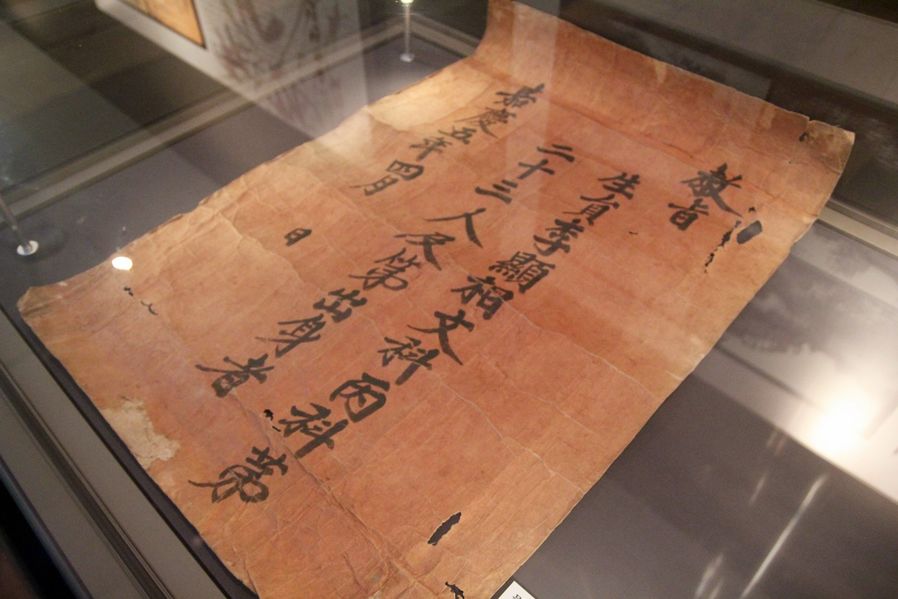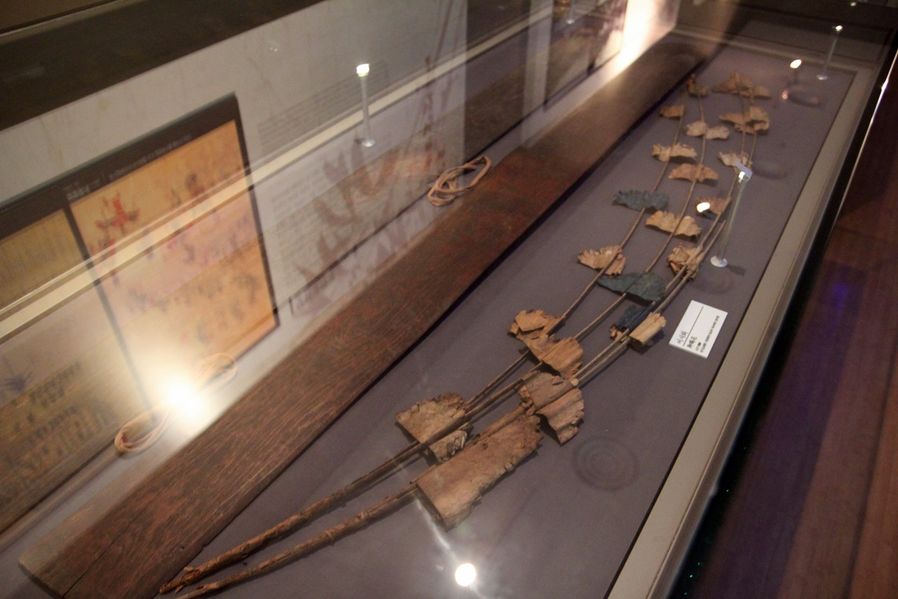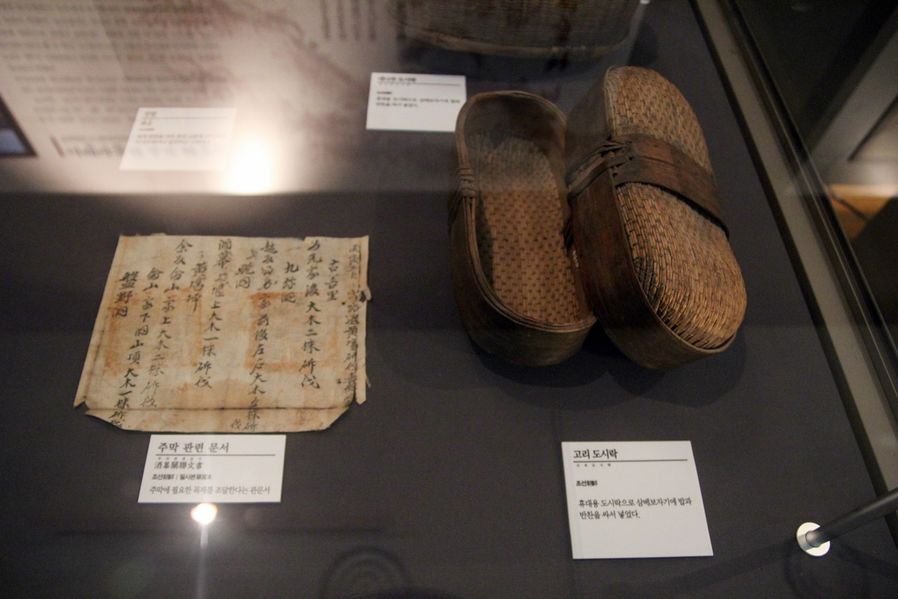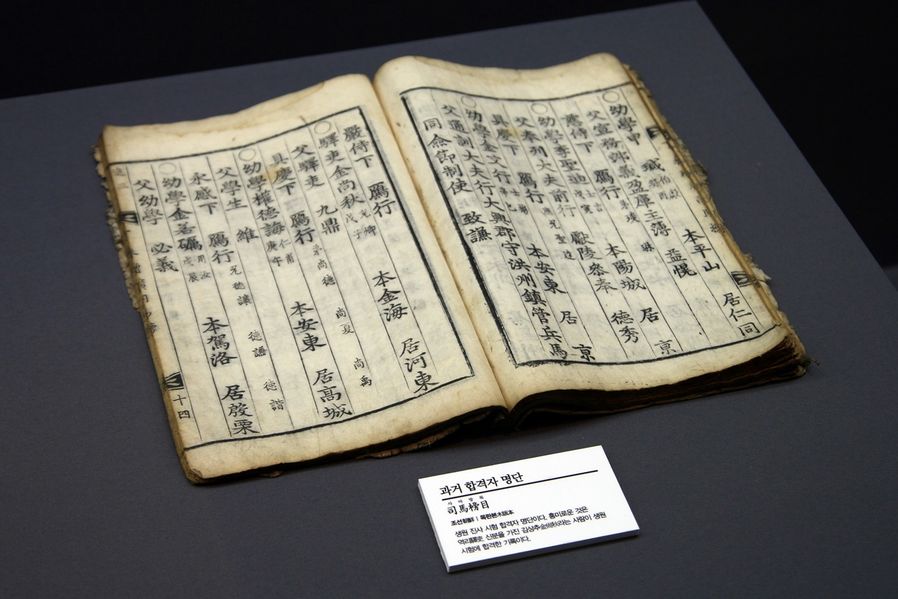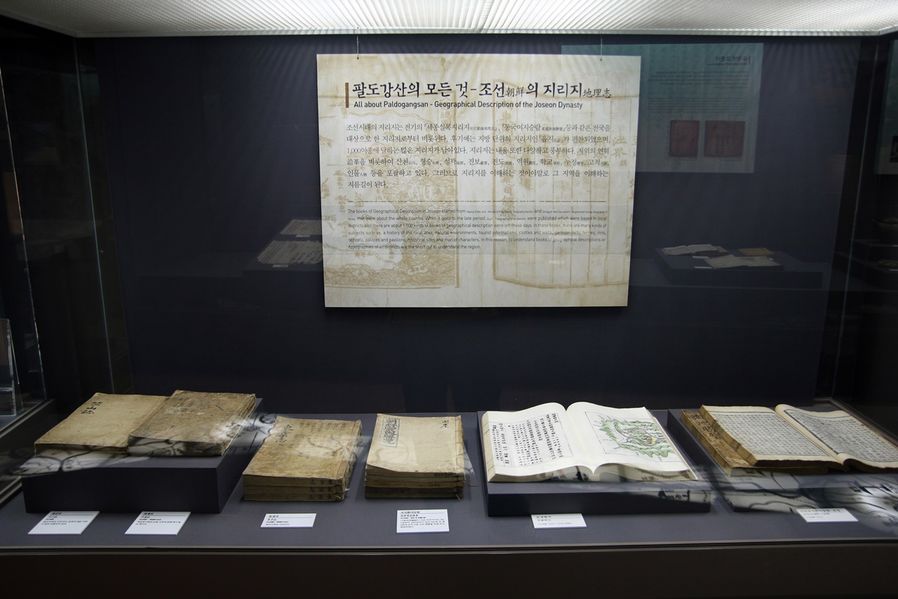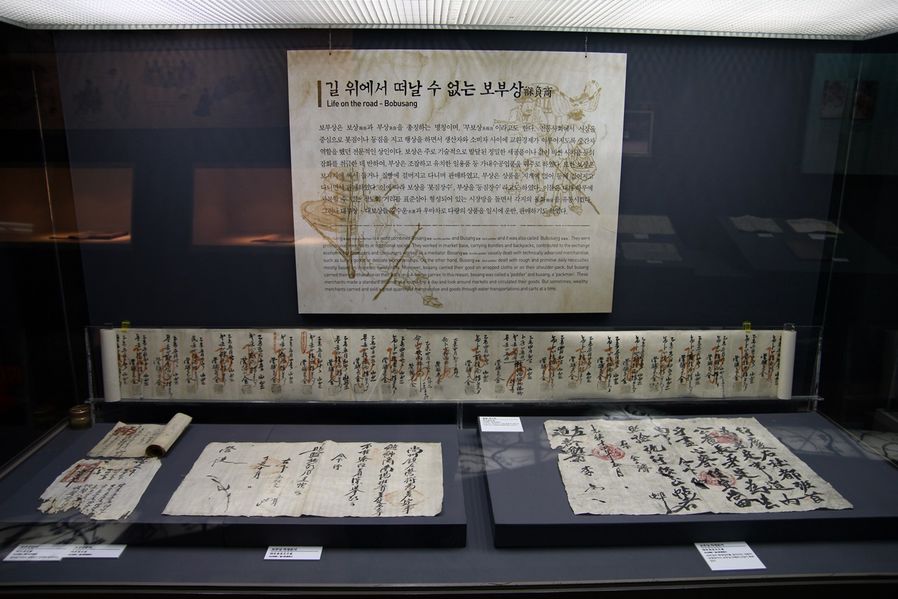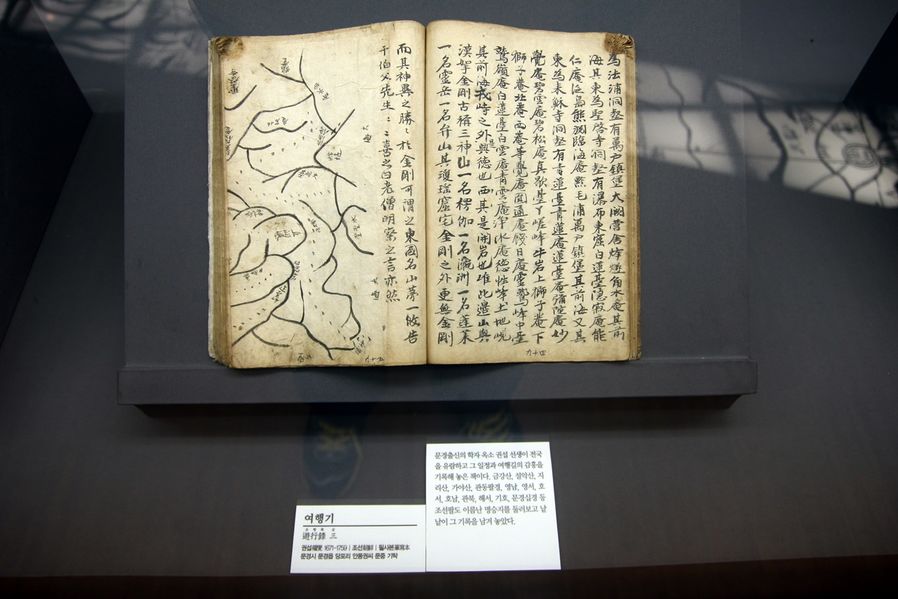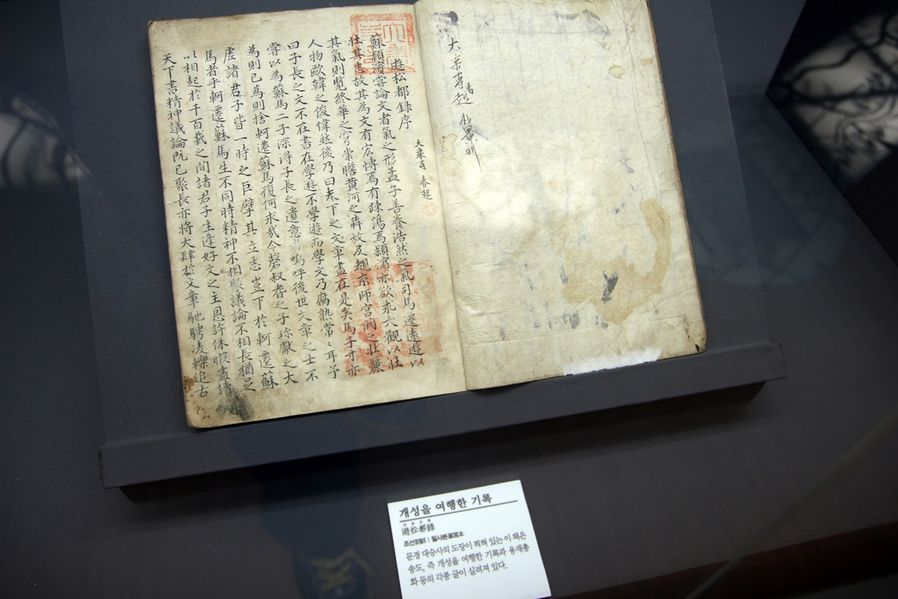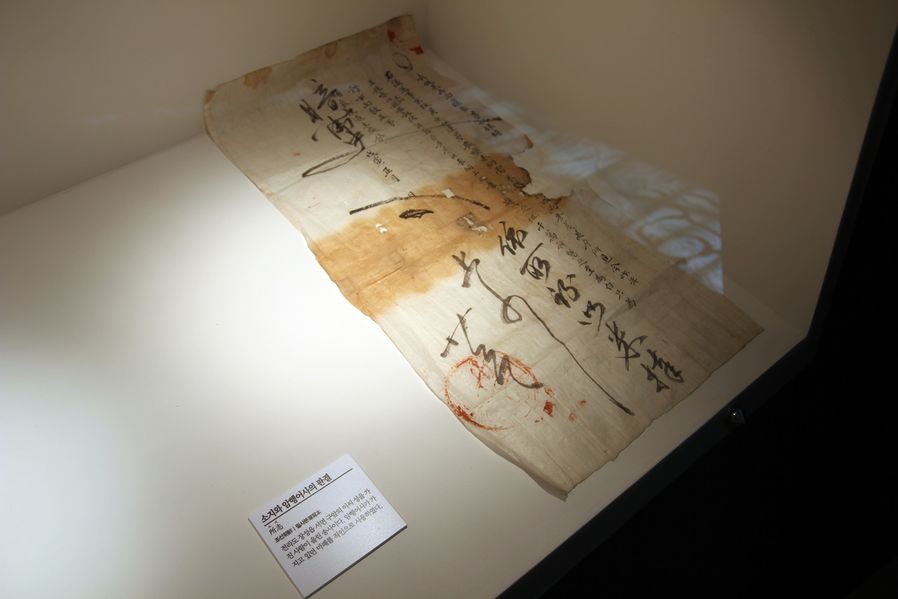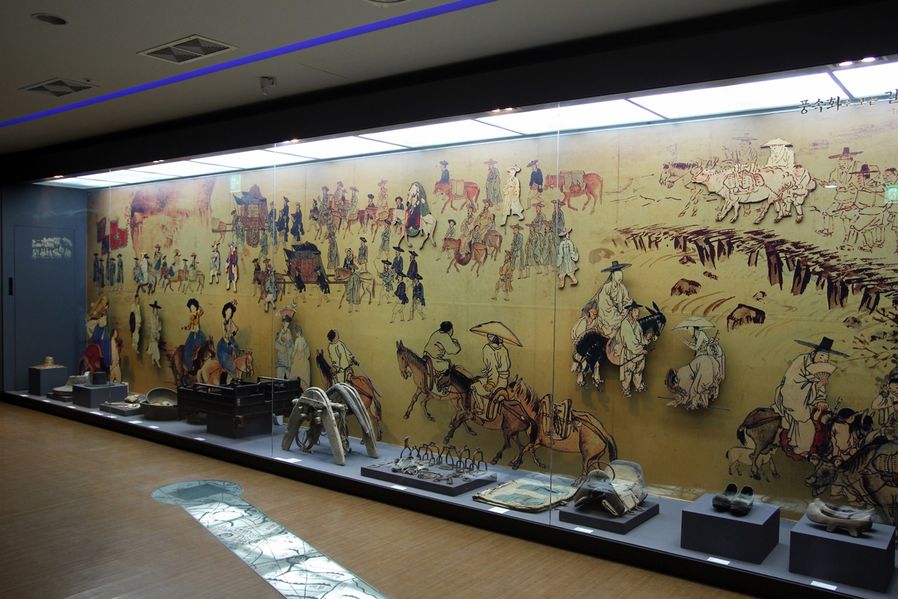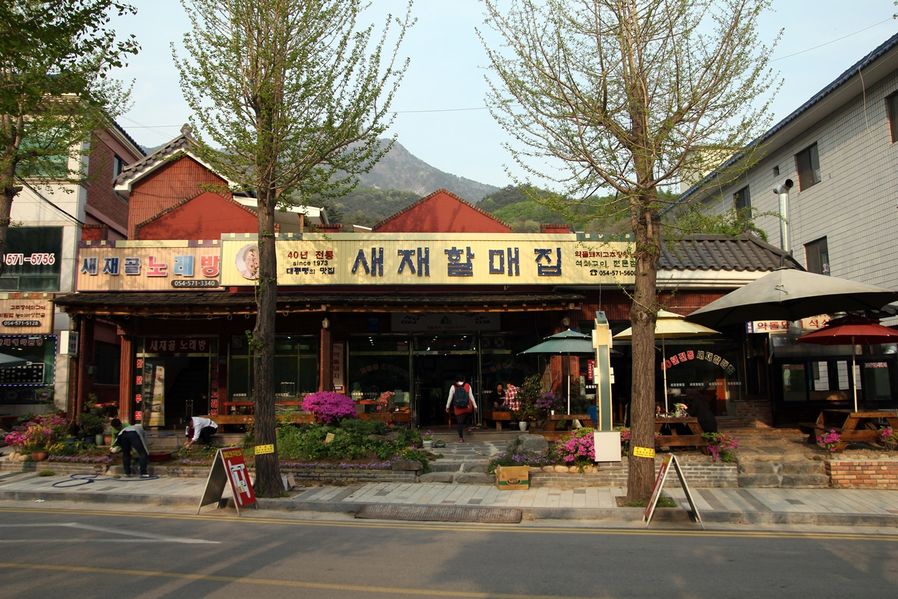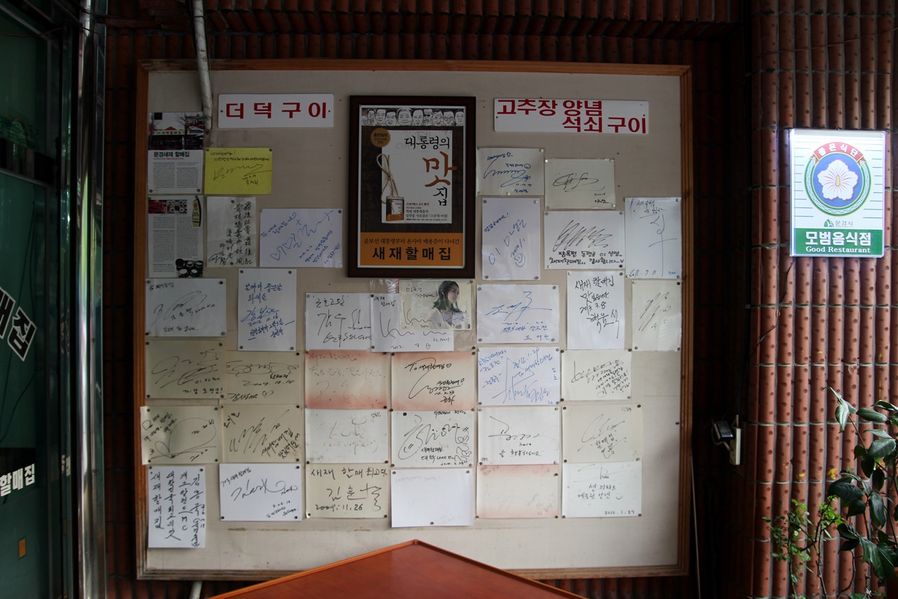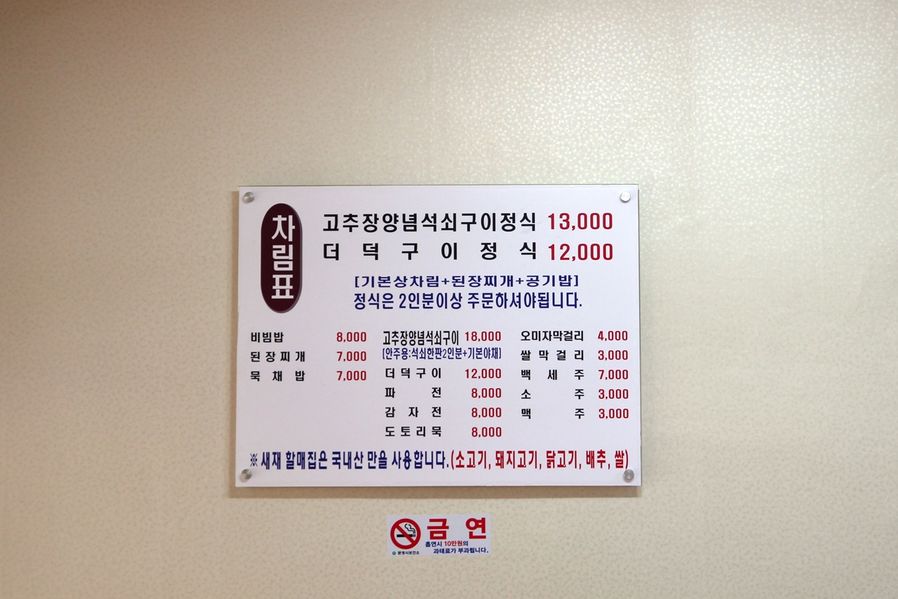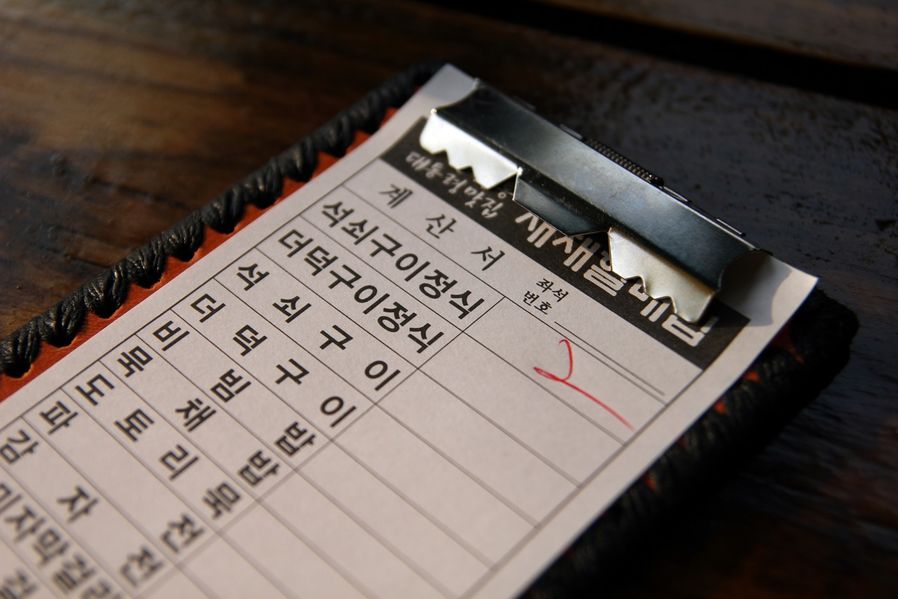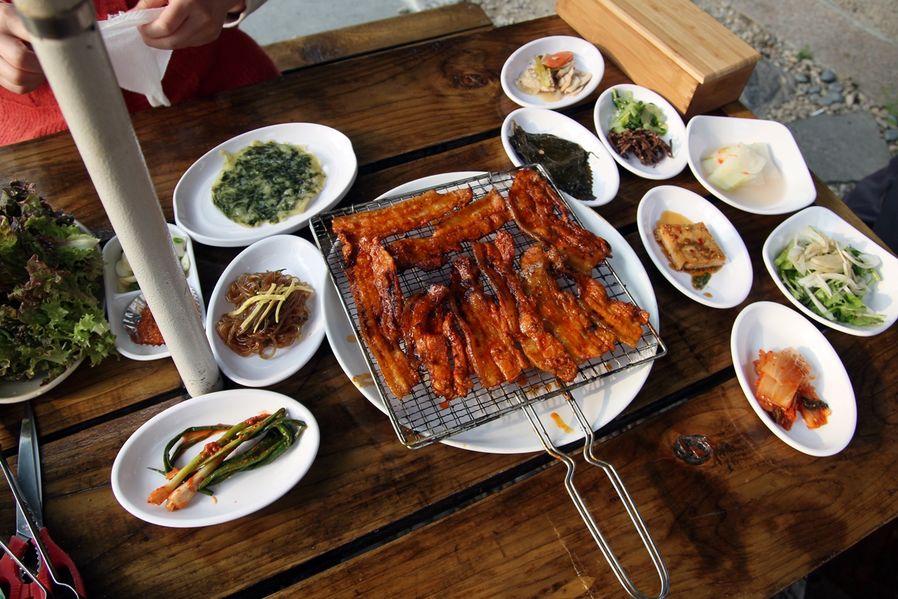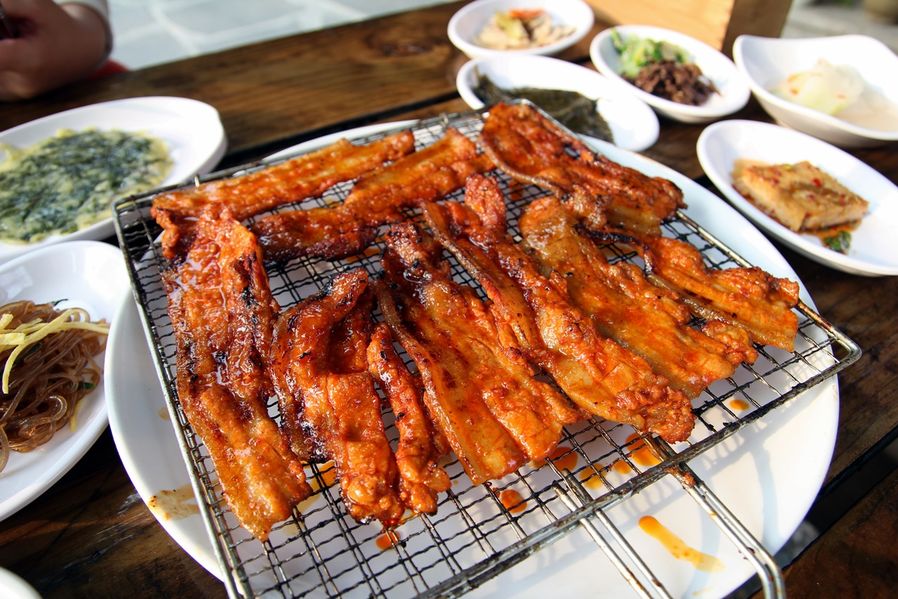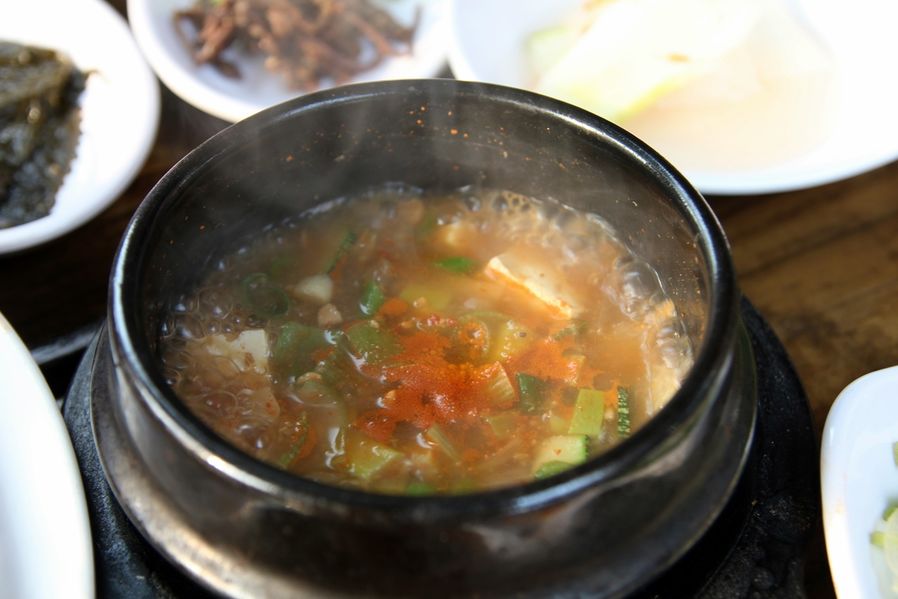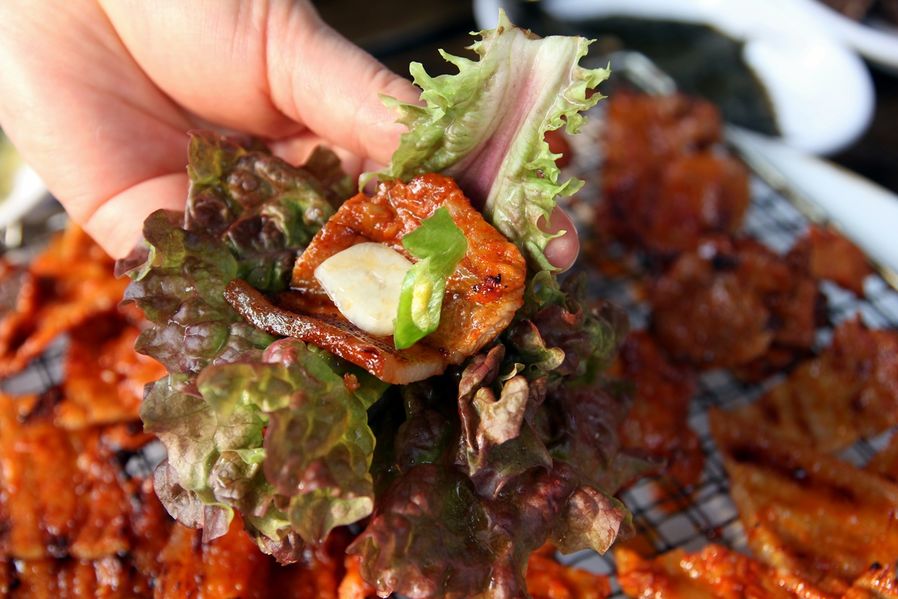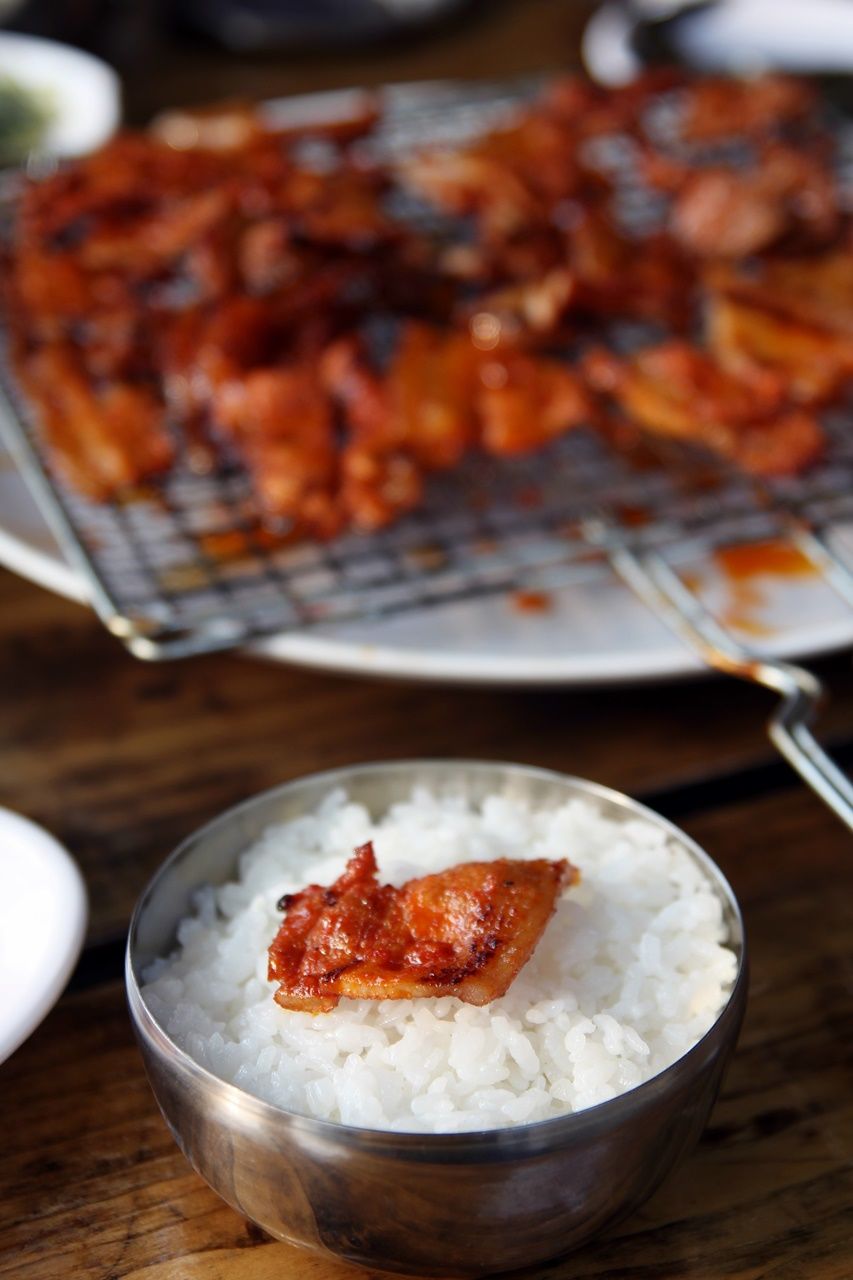-
Start
-
Mungyeongsaejae
-
Mungyeongsaejae Filming Site
-
Museum of Old Roads
-
Natural Recreation Forest
-
Trekking-1
-
Trekking-2
-
Gaeun filming site
-
Coal Museum
-
Guryangri Rail Bike
-
Finish
Byword for Uphill Path, Mungyeongsaejae Museum of Old Roads 문경새재 옛길박물관
On every road, so many people's lives are involved. Yangbans who were going for civil service exams, their acceptance and appointment of public services, peddlers selling things moving between cities, tourists traveling 8 provisions and inns making business on that road, so many lives are involved. Museum of Old Roads reflects the identity of road and it shows what was inside Goenari botjim that people used to carry while they were wandering around, what kind of civil service exam did many yangbans have to take who used to walk along this road, how did they acceptance and returning home in glory.
The building looks magnificent. Three of thatched-roof palatial houses with three gambrel roofs were united. There is no modern building anywhere which makes it interesting.
Address: 994, Saejae-ro, Mungyeong-up, Mungyeong-si, Gyeongsangbuk-do (경상북도 문경시 문경읍 새재로 944)
Telephone: 054-550-8366~8
As I entered the building, old maps on the floor and Geonari botjim hanging on the wall facing the entrance were impressive.
The clothes our ancestors used to wear in Joseon Dynasty era are also displayed. These clothes were not imitated but actually excavated.
In a similar way, school bags from 1960-70s are displayed. I also remember using that bag that I have to turn the iron lock towards the square clasp to lock it and turn back to lock it.
They played audio about Arirang which used to be sung by people walking this road and also displayed Arirang cigarettes and matches. They were interestingly organized.
I also found overview of maps that shows main roads and stops around Hanyang in Joseon Dynasty era,
as well as compass and sundial that our ancestors used. I am just amazed that they saw the time with it. So on the 1st floor, the things that were found in Geonari botjim and used in Joseon Dynasty era are displayed.
On the 2nd floor, a detailed version of map that we just watched is drawn on the floor. It is amazing if you see this for real. Living cultures and outcomes of administration of people related to Mungyeongsaejae were displayed.
This is civil service exam sheet in Joseon Dynasty era. If I take the time machine with this and go back time, there is no doubt I would've won the first place in the civil service exam.
This is Gyeongseogaji with scripture phrases written on narrow bamboo sticks to remember them. I believe it is like a vocabulary list for students today.
I guess classical scholars or students had to do this to remember at the time.
This is a school magazine that says you passed the state exam in Joseon Dynasty era.
This tells that Classics Licentiate Lee Hyeon-sang passed civil service exam. Well, congratulations to him even if it's 200 years late. :)
I believe everyone might know what this is. Lee Mong-ryong was wearing Eosahwa on his head when he met Chun-hyang.
Eosahwa is a paper flower that was granted by the king to those who passed the civil service exams in Joseon Dynasty era.
Supplies needed by the inns must've been managed by government in Joseon. This document says that the government is to deliver the supplies required in the inns issued by the government.
This book seems interesting. It is a list of the names of the applicants who passed classics and literary licentiate exams.
In the description below, it says Kim 'Sangchu' from Gimhae who had been a Yeokri(驛吏) (on left page) passed the classics licentiate exam. Literary licentiate is higher status than common people but lower than Hyangri, which is a minor official of the provincial government office.
Various map books were also displayed including 'Sinjeung-dongguk-yeoji-seungram' which was needed for ruling since the establishment of Joseon.
The Chaceong (差定-assigning office work) documents regarding various peddlers are also displayed. Based on this, it is assumed that peddlers were appointed by the government when he had particular missions.
This was the most impressive book for me. This book titled 'Yeohanggi(travel notes)' is 'Yuhaengroksam (遊行錄三)' which was written by Gwonseop, a scholar from Mungyeong, regarding his journey and his feelings during his trip to everywhere in this country.
I was told that he took a look around eight beautiful sceneries of Gwandong including Mount Geumgang and recorded it. This is really exciting. If there is a description in Korean, I would like to buy it.
This book is another journal notes which records the trip to Gaeseong. I regret that I didn't learn Chinese characters. This book also seems like it needs to be translated into Korean soon.
This document is litigation started by a person whose last name is 'Lee' living in Jeollado, later reached a verdict by royal secret investigation and sealed with Mapae.
I have no idea why I find the lawsuit of people from old times so fascinating. This is interesting.
In the Museum of Old Roads, there were many more relics and materials than the ones in my photos.
If you take your children, there will be a lot of stories to tell, and if you are interested in old cultures, you won't regret it one bit. I strongly suggest you to visit at least once. Now that I'm done, I feel hungry. Shall we go eat something?
40 year old restaurant in Mungyeongsaejae 'Saejaehalmaejib' 새재할매집
I walked quite a long time so it's time for me to eat some meat.
There are different kinds of food that represent Mungyeong but most of all, 'Yakdoldoeji Seoksoegui' is well known.
Miners who used to work in Eunseong coal mine which was located in Gaeun-eup, Mungyeong-si during Japanese colonial era used to eat pork in order to remove coal dust inside their body so the consumption rate of pork was particularly high in this region.
After the coal mine was closed, one of granite called Geojeongseok(巨晶石) was found and it was called 'Yakdol(stones)' and made into powder to drink since it was known to contain rare elements that have pharmacological actions beneficial to human bodies including holmium (skin diseases, cure for liver cancer), selenium (removal of heavy metals), and germanium (sterilizing action).
Yakdoldoeji refers to pigs that were fed stone powder of this crushed rock with feed. This yakdol is only distributed in Mungyeong area so it became one of its famous dish, and the pigs that were fed yakdol are famous for its great taste and healthy meat.
Address : 288-60, Sangcho-ri, Mungyeong-eup, Mungyeong-si, Gyeongsangbuk-do (entrance to Mungyeongsaejae) (경상북도 문경시 문경읍 상초리 288-60)
Opening hours : 10:00 a.m. - 08:00 p.m. (depending on available ingredients), Closed: Holidays
Popular menu : Gochujang Yangnyeomseoksoegui, Deodeokgui
Parking lot: Use the parking lot behind the restaurant or you could use Mungyeongsaejae parking lot for one and a half hours with no charge
In front of the entrance to Mungyeongsaejae, there are restaurants lining up on both sides of the road that specialize on Yakdoldoeji Seoksoegui.
Among them, I went to 'Saejaehalmaejib' which has 40 years of history and was aired on TV a few times.
So many famous people, not only tourists, must have dropped by this restaurant while they were shooting a movie or drama.
It is also popular among Mungyeong residents. The must-go restaurant is where its residents come by often, right?
Saejaehalmaejib's special cuisines were 'Jeongsikmenu(full course menu)' which offers you a meal including Gochujang Yangnyeomseoksoegui and Deodeokgui, and 'Ilban-gui(normally roasted meat) ' which goes well with drinks.
I could eat deodeok(mountain herb whose roots have restorative properties) in other regions so I ordered pork that was fed Yakdol and could be found only in Mungyeong called Yakdoldoeji Gochujang Yangnyeomseoksoegui for 2 people.
When a customer gives them an order, a few middle-aged women prepare dishes instantly and the employees in the kitchen of the main hall start to put seasoned pork on gridiron (called seoksoe) to grill.
Maybe because it was not busy hours so in no time, 10 kinds of dishes, ssam (leaves of lettuce or other greens) vegetables and seoksoegui were served.
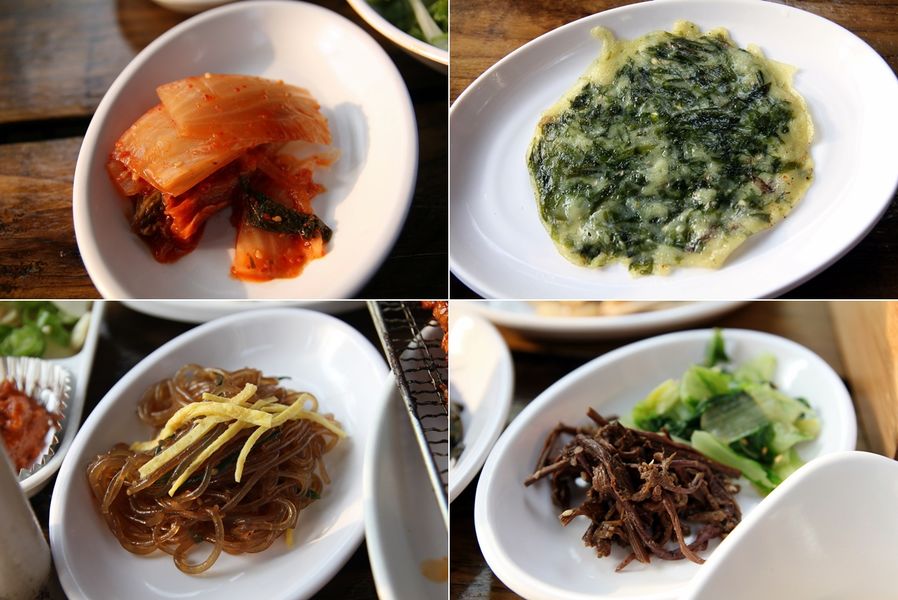
Side dishes included from cooked dishes to vegetables, from spicy and salty to light sauced dishes, from newly cooked to ripened dishes, and from kimchi for adults to vegetable pancakes and Japchae(stir-fried glass Noddles and vegetables) for kids, everything was balanced.
Dishes were neat and properly salted. For kids who are too young to eat gochujang sauce, Japchae and Parebuchimgae(green laver vegetable pancakes) seem good to eat.
This is our main dish, Gochujang Yangnyeomseoksoegui with Yakdoldoeji-samgyupsal for 2 people. Wow~can you see that properly grilled skin? :)
First of all, smell of charcoal fire that comes from red yummy color of gochujang increased my appetite. I tried one bite of pork and it was soft and chewy at the same time because of pork skin along the end. Plus, they roasted the meat on a gridiron to extract oil from meat so Samgyupsal does not taste oily even if it has a big portion of fat.
It is less salty compared to Gochujang-samgyupsal sauce in Seoul/Gyeonggi regions and this means the food is not too spicy or salty. For those who love strong flavors, it would be a little disappointment, but for me, I think I enjoyed more of meat flavor with less sauce. The taste was much better with smell of charcoal.
As we were enjoying the food, they served jjigae which is only included in Jeongsik menu.
It was Doenjangjjigae with tofu, pumpkin, onion, Cheongyang red peppers and scallions in it, and Cheongyang red peppers made it spicy and refreshing.
When you use Doenjang sold in markets, it tastes heavy and thick, but this one has deep and neat that tastes like home-made Doenjang.
The port itself is good enough but if you make this it would taste different. Put one big piece of pork with Ssamgjang, garlic and peper tastes so good, not pungent or cheesy. Do you want a bite?
I was wondering how would Yakdoldoeji meat that were fed crushed rock taste like when I was preparing for my trip to Mungyeong, and I say it was good.
However, there was no wow effect so I didn't notice anything particularly special compared to others.
However, I liked the flavor of sauce made in Saejaehalmaejib that made me taste original taste of pork since it was clean and non-pungent even if they had spicy sauce, not common gochujang (red pepper) sauce which could make me miss the original taste of meat that I wouldn't have noticed with too spicy or salty.
For those who go to Mungyeongsaejae, I would like to commend you to try this restaurant since it is close to the entrance and you can try this menu only in Mungyeong.









